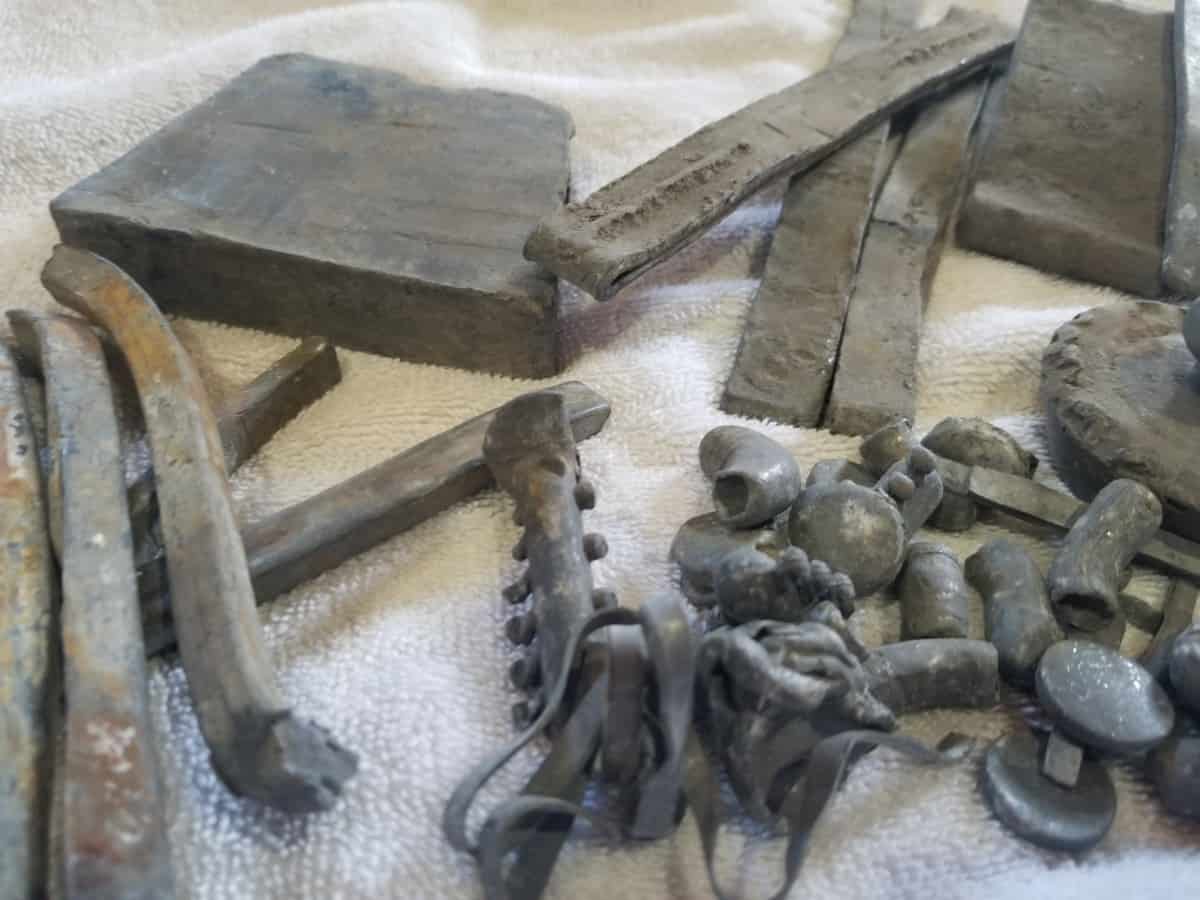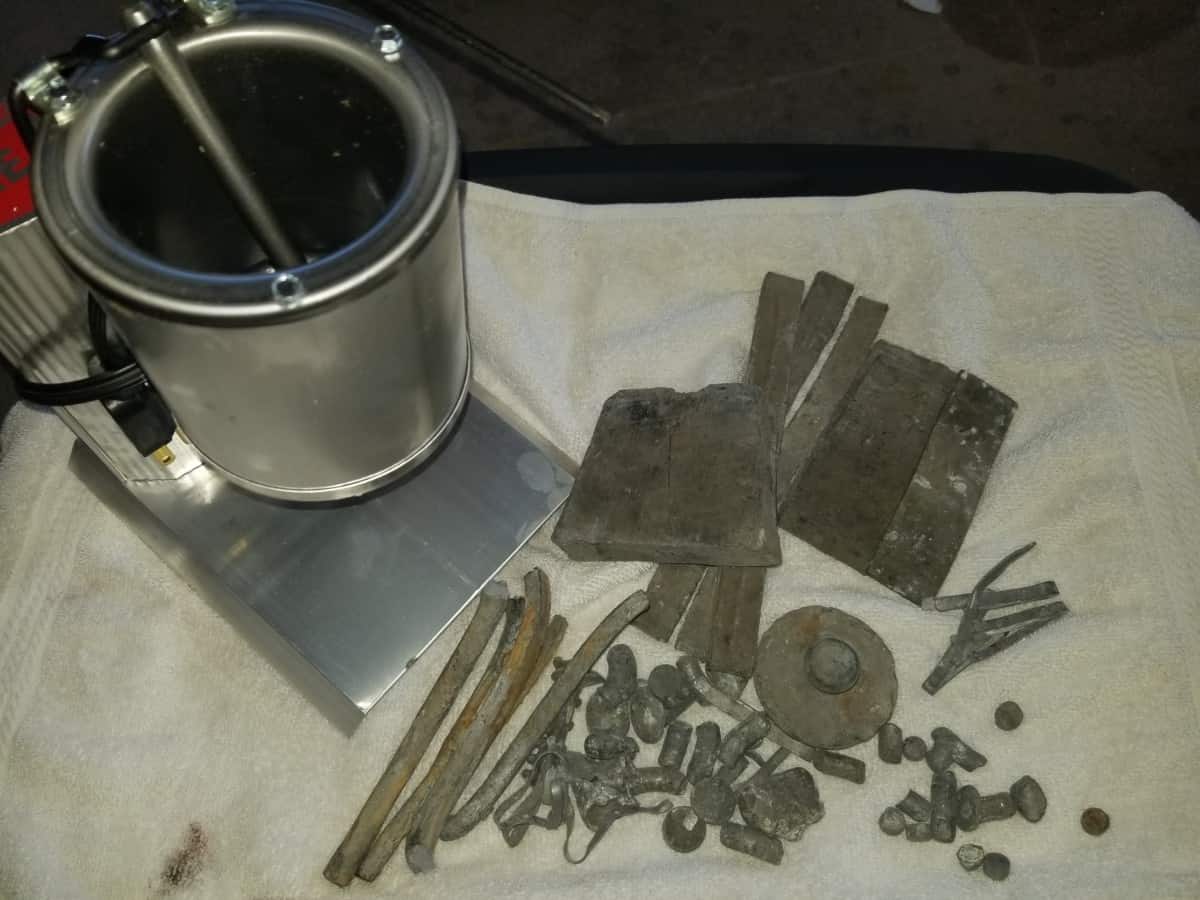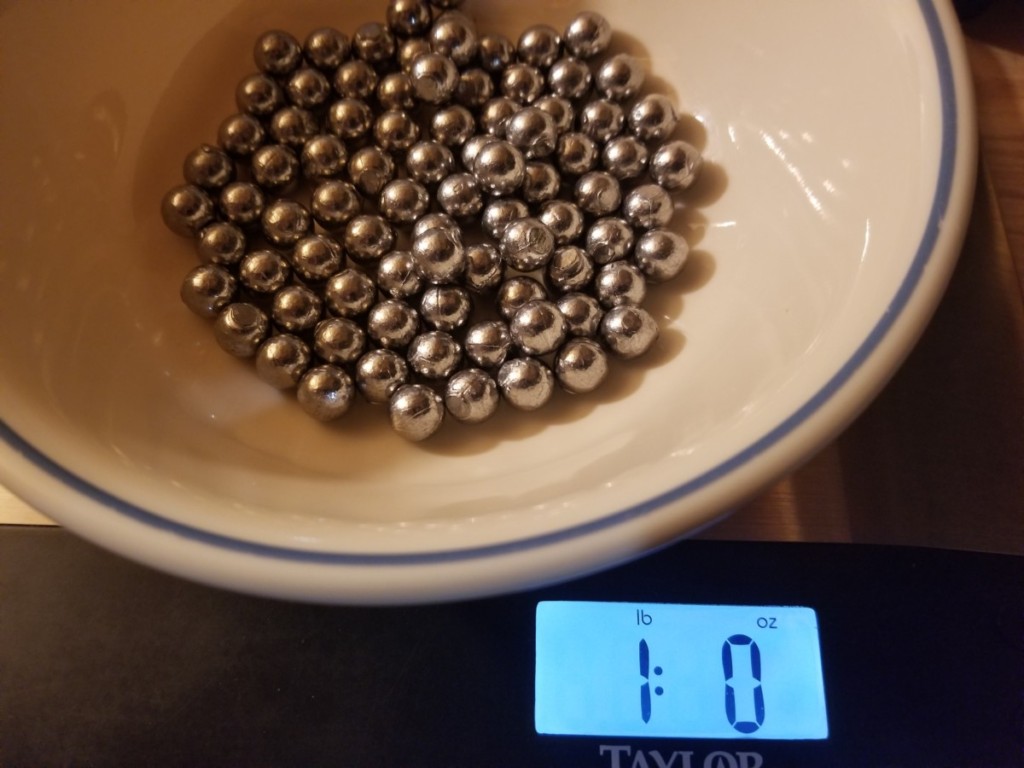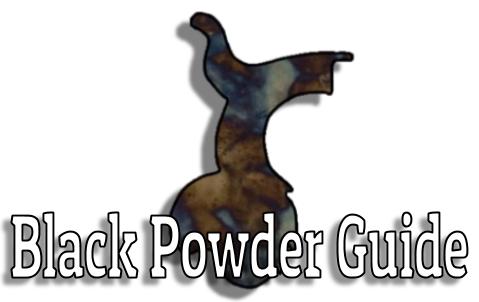Casting your own round balls is one of the most satisfying aspects of being in the black powder world — so long as you’re outdoors and upwind when doing it!
Unfortunately, lead can’t just be grown or easily harvested. You have to buy it, make connections to source it, scavenge for it in what others call junk, or sift for it at a range.
The best sources of lead for casting round balls for black powder shooting include the following:
- Range scrap
- Roof flashing
- Spent wheel weights from tire shop
- Lead Iso Cores from nuclear pharmacy
- X-ray foils from dentist
- Reclaimed fishing sinkers and splitshot
- Diving Weights
- Boat/Pontoon/Sail Boat keels
- Stained Glass “Lead Came”
- Lead pipes from old plumbing
- Online Sources
Either way, it’s going to take some work or some money and an understanding of just what type of lead you’re dealing with since all sources are not the same.
I was perplexed when I first started and quickly assumed I could just run down to my buddy’s mechanic shop and scoop up a bunch of wheel weights and have tons of round balls for my cap and ball revolver. That couldn’t be further from the truth!
I’ll cover what I’ve learned from my research and hopefully it will help guide you down the right path based on your needs! Let’s get started!
Sources of Lead for Casting Round Balls
| Source | Hard or Soft | Purpose | Notes |
|---|---|---|---|
| Range Scrap | Hard and Soft | All black powder firearms if sorted correctly | Hard-cast bullets are too hard for revolvers but fine for long guns. Jacketed bullets have a soft lead core that is suitable for revolvers. Separate the two if you need them for black powder revolvers. Unsorted range scrap is fine for long guns. |
| Roof Flashing | Soft | All black powder firearms | Once melted and the dross removed from the top, this is a fine source of soft lead. |
| Spent Wheel Weights | Hard | Black Powder Long Guns | New wheel weights are made of zinc and steel and cannot be used. Older ones are a lead alloy and are too hard for revolvers. You can mix in higher quantities of soft lead to make it suitable for revolvers. |
| Lead Iso Cores from radiation pharmacy | Hard | Black Powder Long Guns | |
| X-Ray foils from Dentist | Soft | All Black Powder Firearms | Harder to come by with advancing technology |
| Reclaimed Fishing Sinkers, weights, and split shot | Soft | All Black Powder Firearms | |
| Diving weights | Varies | Black Powder Long Guns | Test each batch for hardness with the "thumbnail test" |
| Boat/Pontoon/Sail Boat keels | Hard | Black Powder Long Guns | Massive pieces that will take a chainsaw to cut through for transport. |
| Stained glass "lead came" | Soft | All Black Powder Firearms | |
| Lead Pipes from old plumbing | Water lines soft, joints are hard | All Black Powder firearms if sorted | Cut out the straight sections for revolver use. Joints have a lot of tin in them. |
| Online Sources | Both | Depends on what you buy | ebay.com, rotometals.com, zipmetals.com are all popular sources |
Range Scrap
If you have a local gravel pit where everyone goes to shoot, or a range that won’t mind you doing a little work, you can easily sift out lots of spent bullets from a dirt embankment.
Simply take a metal screen and build a frame around it for rigidity, a shovel, and get digging. You will find rocks, hard cast bullets, and jacketed bullets.
It is best to replace the sifted dirt from where you found it to leave the area as you found it — especially at a range that is enjoyed by others!
Don’t worry about sorting everything at once, just toss everything into 5-gallon buckets and take them home.
If you’re just making round balls for muzzle loading rifles and muskets, you can just melt away. If you’re looking to make round balls for shooting revolvers, you will want to separate the hard cast bullets with the jacketed ones.
The hard cast bullets are an alloy and will be too hard for your revolvers loading lever and can damage it. The inner core of the jacketed bullets will be soft lead and suitable for revolver use.
Jacketed bullets have a lead core and a copper outside shell, for example. The jacket can also be of other metals.
Roof Flashing
If you make contact with a local roofer or someone at a scrap yard, they might be able to hook you up with some old roof flashing. This is soft lead (suitable for long guns and revolvers) and is rolled in sheets. It’s about 1/8″ thick but is heavy once it starts adding up.
You can also use the lead pipe flashings (aka “boots” or “jacks”) that go on roofs as well. The have a square, lead base and a cylindrical lead upright. All of this is soft as well.
Spent Wheel Weights
Due to EPA and other environmental regulations and concerns, lead wheel weights are definitely starting to disappear.
They are now made of steel and zinc and cannot be used for round balls.
The older ones that you can still find are a lead alloy and are too hard for use in revolvers due to it damaging the loading lever. They are still perfectly fine for rifles or muskets.
Lead Iso Cores from Radiation Pharmacy
I don’t have any experience in this area, but if you’re near a pharmacy that deals with radio-pharmaceuticals, you might be able to pick up some lead iso cores that were once used to transport radioactive medications.
These should be safe in handling by the time you are able to get them.
If you pay the pharmacy what they could get by selling it to a recycling company, then they’ll likely let you have a few.
The lead used is an alloy, from my research, and shouldn’t be used with black powder revolvers unless it passes the “thumbnail test”. You should be able to leave a distinct line or indentation into soft lead with light to moderate pressure from your thumbnail. It should also flatten very easily from light to moderate tapping from a hammer.
X-Ray Lead Foils from Dentist
As dentists switch over to digital, these are getting harder and harder to find. Digital x-rays use an electronic sensor that is placed in the patient’s mouth.
However, if your dentist still uses the old school method where a film is placed in your mouth, it then has to be taken to a dark room to develop. Once of the internal components of that film is a lead foil.
By itself, that piece of foil is of no use to you for casting your own round balls. Over the course of a year they really start to add up in a dentist’s office and can often be had by paying the same price as the recycling company.
These foils are soft lead and are suitable for any black powder firearm.
Reclaimed Fishing Sinkers, Weights, and Split Shot
Garage sales can net you some deals on fishing weights if you keep your eyes open to it. Ebay is not as good of an option since the sellers of fishing weights already know that you’ll be using it for casting round balls and price it competitively.
Either way, the weights should all be soft and are suitable for all black powder firearms.

Diving Weights
You can also find these at yard sales. The weights used in diving vests and other equipment is made of lead.
With the research I did, I can’t get a definitive answer on if it is pure lead or a lead alloy that’s used.
I would treat it all as if it’s an alloy that is too hard for cap and ball revolvers unless it passes the thumbnail test.
Regardless, it should still be fine for black powder rifles and muskets.
Boat/Pontoon/Sail Boat Keels
Personally, I can’t imagine needing this much lead on hard or even trying to carry chunks that big, but you can also find lead from scrap boats. The keels are weighted down with lead and they are in massive pieces.
One YouTube channel claimed to use a chainsaw to break them up into more manageable pieces — and even then they were far too massive to start to melt down without breaking them down further.
This lead is an alloy and is too hard for cap and ball revolvers.
Stained Glass “Lead Came”
The “lead came” are the soft lead strips that divide the pieces of the stained glass.
If you can find it or source it, it is soft and should be suitable for cap and ball revolver use.
Lead Pipes from Old Plumbing
The straight pieces of water lines should be pure lead and are soft enough for cap and ball revolver use.
The joints are a different story and are a good mix of lead and tin which will make them far too hard for cap and ball revolver use.
Online Sources
Ebay is a go-to place for sourcing lead, but the prices have risen in recent years. Everyone selling it knows what it’s worth. If you keep an eye out, you might find a great deal.
The problem is that you don’t know the true quality in most cases, especially if you’re looking to use it for a revolver. If it’s too hard, you’ll damage the loading lever. You can’t do the “thumbnail test” online, but you could always ask the seller.
Rotometals.com is another site that sells lead ingots, as well as zipmetals.com.

How Many Round Balls per a Pound of Lead
It will completely depend on the caliber of your weapon and the exact diameter of the round balls you plan on casting.
I have an entire table covering a dozen of the most common sizes here that you can check out, as well as a formula to calculate an answer if your particular size is not listed.

